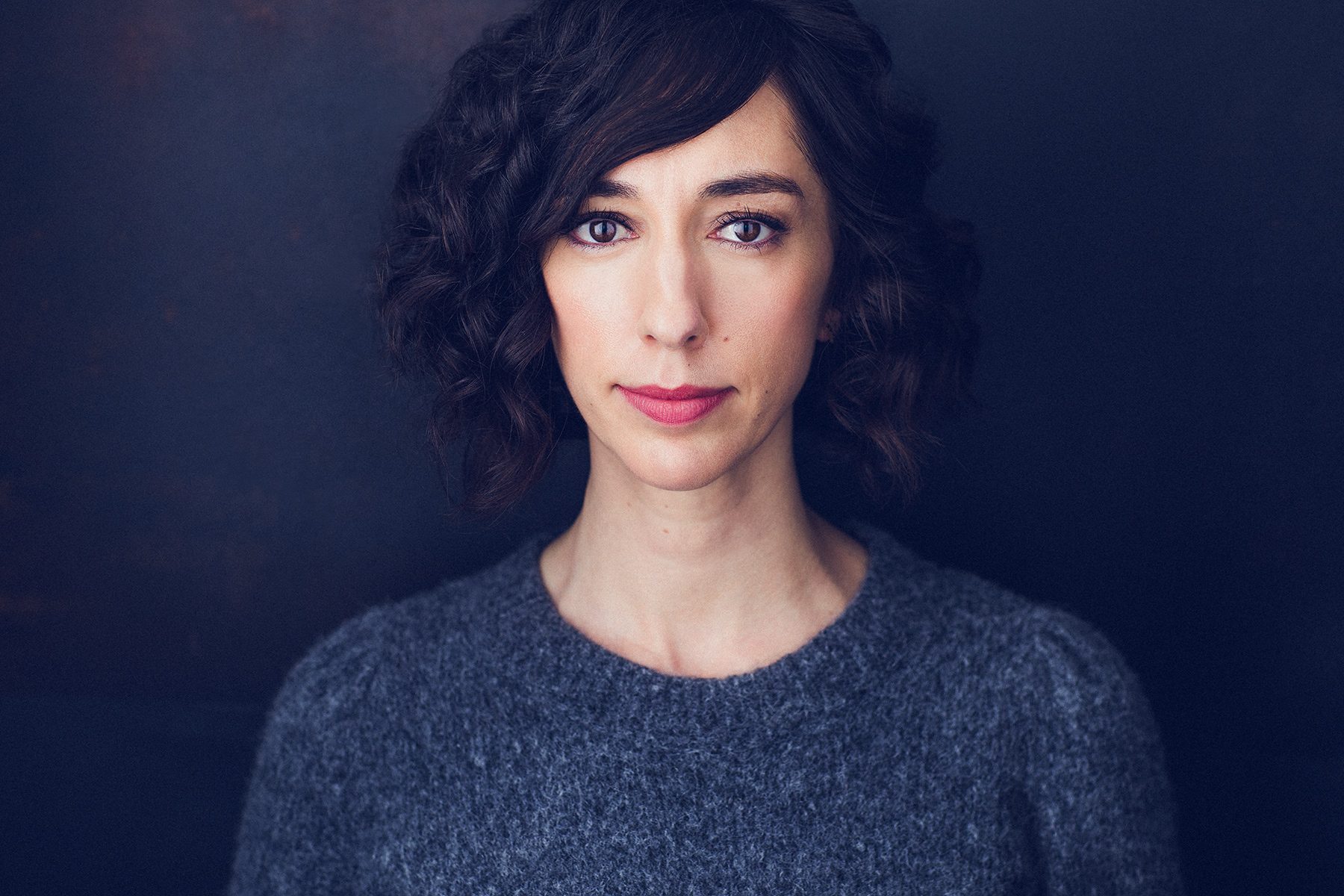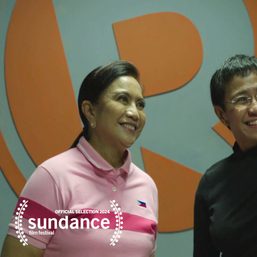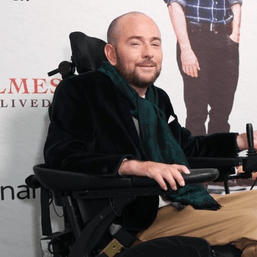SUMMARY
This is AI generated summarization, which may have errors. For context, always refer to the full article.

As a filmmaker, Lana Wilson talks about the tough stuff.
Her debut feature-length documentary After Tiller (2013), a collaboration with Martha Sheane, followed the lives of the 4 remaining doctors in the United States who continued to openly perform late-term abortions despite threats to their lives.
Her second feature film The Departure (2017) told the story of a reformed punk, now a Buddhist monk, who helped depressed and suicidal people in Japan – at the cost of his own personal life and health.
Lana’s latest film, Miss Americana, premiered on Netflix in 2020. It is perhaps her most glamorous film yet, centering on Taylor Swift. But far from telling a flashy, sensational story, Lana instead captured the pop superstar’s various struggles (dealing with body dysmorphia, toxic internet culture, and sexual assault) as she passed through a major turning point in her life.

The stories that Lana tells through her films are often difficult and sensitive, so it comes as no surprise that the filmmaker herself had fears about making movies. But, she said, she was buoyed by the courage of her films’ subjects.
Lana was interviewed by Rappler’s Maria Ressa in an episode of interview series #HoldTheLine that aired on February 19 for Rappler PLUS members. In the interview, Lana gave more insight into her filmmaking and how she came to tell the stories that she did.

“I just felt like this is urgent and this is something no one else is going to do, and they’re so brave about their work. They’re actually risking their lives every day. So, who am I to be a coward about making a movie?” she said in the interview, referring to the 4 doctors she followed in After Tiller.
“They inspired me to kind of put aside my own worries and make this film with them,” she said.
She described the subjects in After Tiller and The Departure as “extreme altruists in a way.”
“I’m really drawn to these people who are figuring out the best way to live, the best way to make a difference. And through that I think understanding the questions we’ve always had, which is, what is the meaning and purpose of our lives? Why are we here? What should we be doing with our limited time on the planet?” she said.
Making films for the next 100 years
It was in a conversation with Ittetsu Nemoto, her subject in The Departure, that she found more direction when it came to her filmmaking.

“One time when making The Departure, just speculating off-camera with Nemoto about what would happen to the film when it would be released….he said ‘your goal should be to make a film that would last 100 years,’ and I really loved that,” she said.
“It doesn’t matter if it doesn’t have an immediate impact on legislation, that’s okay. What matters more is, will this last, and does it change the people who watch it in any way?” she added, saying that she believes films present a different experience from other journalistic stories.
“It’s a 90-minute experience that’s in a completely different context…Watching a movie is more equivalent to going to church or something like that. A kind of religious exploration of life and the doubts that we have without necessarily needing to get answers. Knowing that there aren’t answers, there are no answers,” she said.
“We don’t know the answers to a lot of that stuff but just the act of exploring and asking that and as you say doubting and questioning. And asking the questions over and over again, that’s meaningful in itself, even if you don’t have an ultimate answer,” she continued.
Chronicling Taylor Swift’s coming-of-age
Lana also spoke about how she came to make Miss Americana, which followed Taylor Swift from her 2018 Reputation Stadium Tour, to the release of her 2019 album Lover.

The filmmaker shared that she was initially surprised that she was approached by Netflix to make the film, considering that her previous work had been about very serious topics. As a fan of Taylor’s music, and knowing her cultural and global impact, Lana agreed to do the film.
“Taylor personally was smarter, funnier, and kinder and more generous than I’d ever anticipated. So that was a wonderful experience when you meet a celebrity you’re always hoping that they…especially when you know someone through their songs, or you think you know them through their songs, are they really that person? And she really is,” Lana said.
Lana shared that at the time they started on the film, Taylor had not given an interview in 3 years, following the backlash she received on social media following leaked phone calls between her and rapper Kanye West over her name being mentioned in lyrics of Kanye’s song “Famous.”
“She had been essentially in hiding for a while. She experienced an internet backlash and she’d gone into hiding for a couple of years. And she knew she was at a pivot moment in her life of some kind and wasn’t really sure what that was yet. And I could see right from meeting her, that she wanted to find a way to live where the opinion of other people, the chatter of the world, whether in tabloids or online or in her physical life, of all the threats and harassment she deals with just on a security level on a daily basis – she wanted to find a way to live where she could shut all of that away and focus on her music and her fans and what really matters to her,” Lana said.
“It was a moment where she kind of hit rock bottom. And was coming out of it and trying to figure out what is the best way to live, really? Which is something I’m trying to figure out in all of my films,” she continued.
Lana also spoke about what led up to Taylor becoming more outspoken in her political beliefs.
“As I was fliming her, she just started to feel more and more that after being notoriously apolitical for a long time during Trump’s presidency, because of what was going on in our country especially, and because of the personal circumstances she was emerging from which included not only going into hiding for a couple of years and a sexual assault trial that she went through and survived and won. But not without that sexual assault trial feeling like a dehumanizing, humiliating experience to her. I think it was a moment that altered her perspective in a lot of ways,” Lana said.
“She came out of all of this with this new strength and confidence. And I think that gave her the space to do something she wanted to do for a while but had been told was not okay to do, which was to speak out politically for the first time,” she added.
She recalled a scene between Taylor and her parents, where they disagreed on whether she should endorse a political candidate or not.
“I just thought this is a really powerful scene. A scene a lot of people can connect to because we all have this coming of age moment where we might tell our parent, or someone who loves us, I hear you, but I need to do things my way now,” Lana said.
Finding hope in stories
For Lana, one thing her subjects have in common is that many of them go through lonely, isolating experiences, and they agree to be part of her films to share their story for other people who may be feeling similarly.
“I think it’s true that in the worst moments, we turn to stories. We want to know, did anyone feel this way too? Or, is it just me? I think that is a way of bringing comfort and hope,” she said.
“I think the reason Taylor was game to make a documentary and one as intimate as we made was because she knew that her, for example speaking about her own eating disorder, would give comfort and hope to the millions of people around the world who were struggling with their eating disorders,” she said.
“It’s interesting to me, the generosity of people who are willing to be in the documentary that I or Ramona [Diaz, A Thousand Cuts director], or others make, is that they know that sharing their story could mean something to someone else and could help someone else,” she said.
As different as the topics of her films may be, the common thread is Lana exploring a shared humanity.
“I’m looking for something that, whether it’s a pop star or a Japanese priest, I’m looking for a moment where I feel a chill, an emotion, a sense of shocking recognition in someone who’s very different from me on the surface,” she said.
“I think that’s when you have a moment of, you know, yeah, we are all human beings underneath everything else. We’re all the same frightened, insecure. But also courageous, amazing people who want to be loved and feel like they have meaning and a purpose,” she added. – Rappler.com
Add a comment
How does this make you feel?
![[Only IN Hollywood] After a thousand cuts, and so it begins for Ramona Diaz and Maria Ressa](https://www.rappler.com/tachyon/2024/02/Leni-18.jpg?resize=257%2C257&crop=262px%2C0px%2C720px%2C720px)




There are no comments yet. Add your comment to start the conversation.